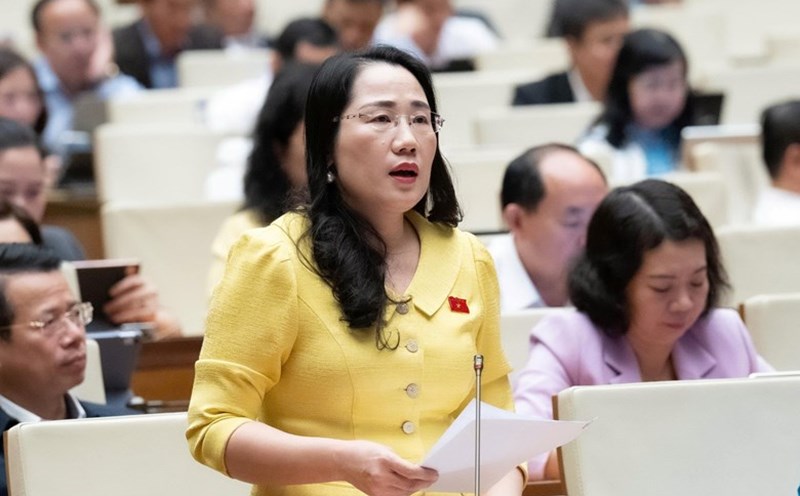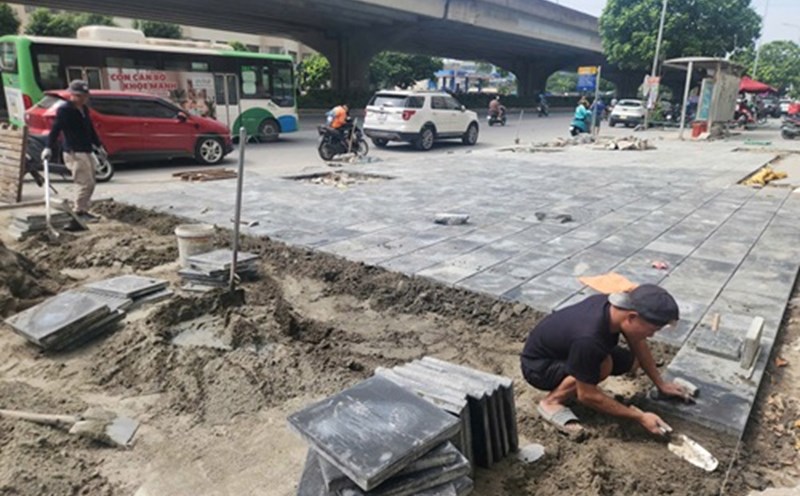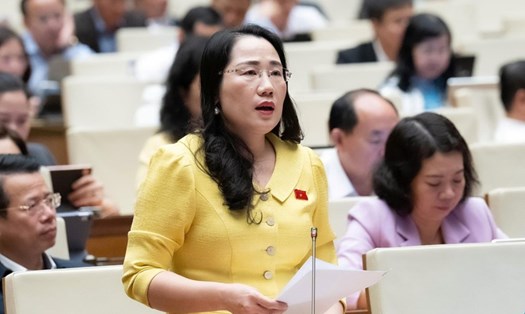Young people immersed in "religious tycoon" on social networks
Speaking to the National Assembly on the morning of October 30, delegate Chau Quynh Dao (An Giang Delegation) said that in addition to the positive impacts, she was very worried about the negative impact of social networks on adolescents. Most of them lack knowledge and skills, and are easily addicted to social networks.
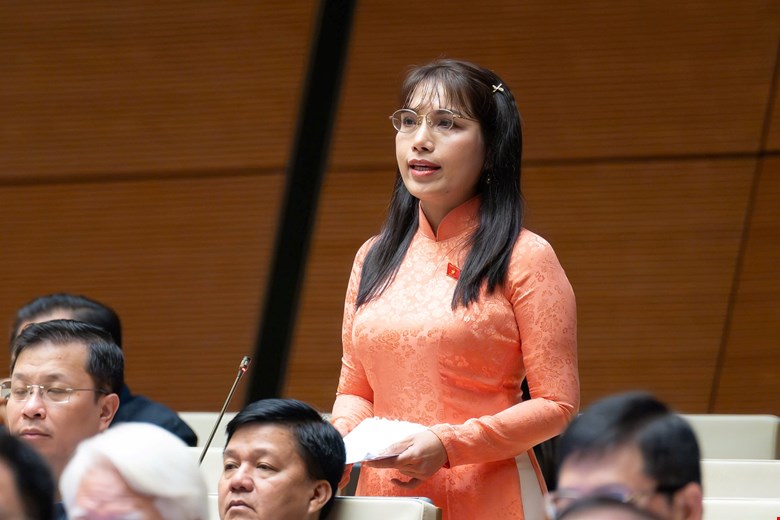
Citing UNICEF's survey data in Vietnam in 2022, 82% of 12-13 year old children and 93% of 14-15 year old children use the Internet every day, with an average of 5-7 hours of social media time, Ms. Dao warned: "If you spend too much time on social media, you will suffer serious physical and mental health consequences".
The survey shows that only 21% of children are confident of having enough knowledge and risk response skills from social networks.
Meanwhile, they may have an impaired immune system due to persistent insomnia, lack of exercise; eye and spine diseases; poor brain thinking and creativity. Mental health also declines with signs of anxiety, stress, easily agitated, depression and self-destruction.
According to Ms. Dao, the reason stems from the system of policies and laws to protect children's safety in the online environment is not complete.
Many families now consider social networks and electronic devices as " nanny cases" so that parents have time to work and make a living. The school focuses on cultural education but lacks extracurricular activities to create a healthy playground, causing students to lack courage, will, and a positive lifestyle.
"You are immersed in a virtual world with a total talent of worship, but in reality, the end is very harsh" - delegate Chau Quynh Dao emphasized.
From the above reality, the female delegate recommended that the Government review the legal policy system, clearly stipulate the age of children allowed to use social networks and limit access time; schools organize two teaching sessions per day, increase extracurricular activities, and diversify learning forms. Along with that, integrate propaganda such as digital learning strategies to help children overcome social media addiction, strengthen their immune system against harmful content online.
On the family side, the female delegate said that parents need to be strict with their children, especially at meals, and have to say no to electronic devices before bed.
"Children must also have the will and determination to overcome the temptations of the virtual world" - she said.
School violence tends to increase
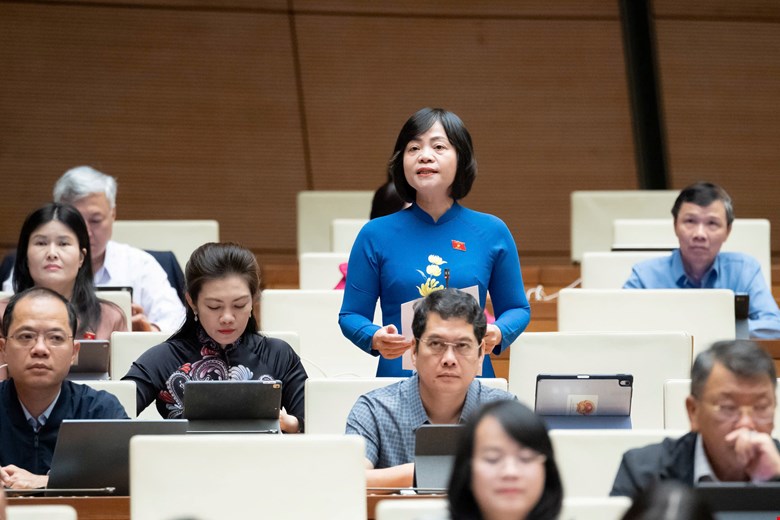
Delegate Nguyen Thanh Cam (Dong Thap delegation) said that school violence is hindering Vietnam's important achievements in education and human development. A 2019 report by UNESCO and WHO shows that more than one of the three students aged 13-15 have been bullied, equivalent to the rate of students who have participated in fights.
According to the delegate, violence is increasingly complicated and younger, causing serious physical and psychological consequences, which can last a lifetime. School violence is not only due to conflicts between students but also originates from families.
"Work pressure makes parents less time to care for and understand their children. being lenient or subject to strict punishment can lead to deviation. The way to behave violently in the family will be learned by children" - the delegate said.
According to Ms. Cam, the rate of students with domestic violence related to school violence is very high, while schools are under pressure to achieve results, so they do not pay much attention to education on ethics, life skills, and conflict resolution. The school psychology consulting room has not promoted its timely support role, making it difficult for teachers to grasp the psychological developments of students.
The delegate also mentioned that children can easily access violent content through movies and video games. The community's indifference to the mentality of "fathers give birth naturally" or failure to intervene promptly makes the situation worse.
The female delegate emphasized the need for a comprehensive solution to this situation. Parents spend a lot of time understanding their children, setting an example of gentle behavior, non-violence. The education and health sectors coordinate to guide schools to receive, detect, and support students affected by violence; build a safe and friendly school culture.
She also recommended that the State have a policy to train doctors and teachers with skills in detecting, handling, and preventing violence; apply a method of active disciplinary education based on respect and cooperation.
"It is necessary to instruct children in the right behavior by encouraging and motivating them instead of disciplining or scolding them," she said.



